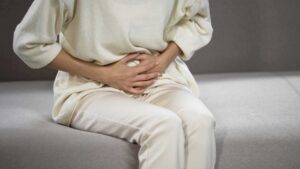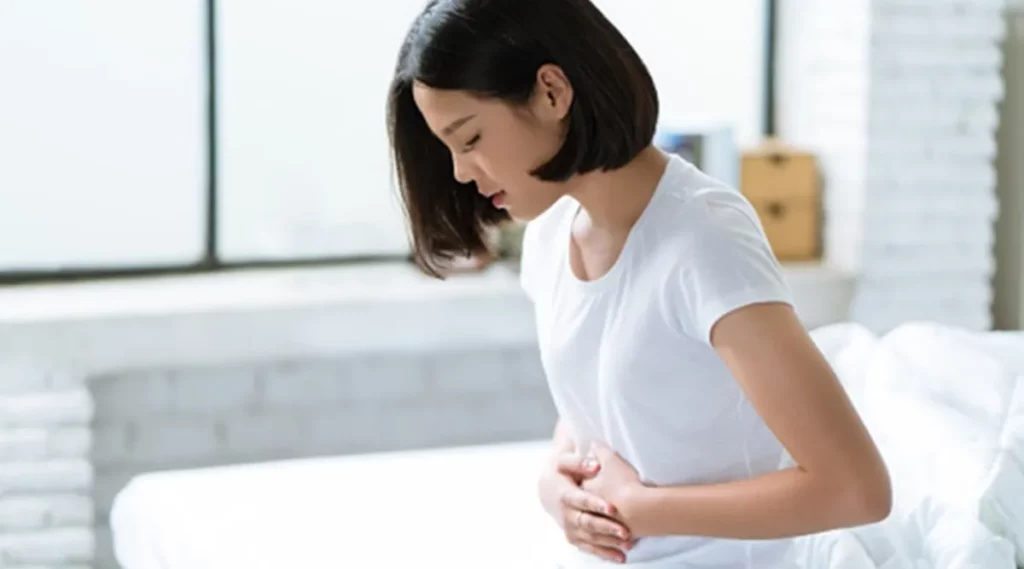Embarking on the journey of womanhood comes with its own set of challenges, and for many, conditions like Polycystic Ovary Syndrome (PCOS) and Endometriosis can add layers of complexity to the experience. These reproductive health issues affect millions of women worldwide, impacting not only their physical well-being but also their emotional and mental health. In this blog, we will delve into the intricacies of PCOS and Endometriosis, shedding light on their symptoms, causes, and the challenges faced by those living with these conditions.
Contents
Can You Have PCOS And Endometriosis?
 Yes, a person can have both Polycystic Ovary Syndrome (PCOS) and endometriosis. While these are distinct conditions with different characteristics, they can coexist in some individuals.
Yes, a person can have both Polycystic Ovary Syndrome (PCOS) and endometriosis. While these are distinct conditions with different characteristics, they can coexist in some individuals.
PCOS is a hormonal disorder that affects people with ovaries and often involves irregular menstrual cycles, elevated levels of androgens (male hormones), and the presence of cysts on the ovaries. Endometriosis, on the other hand, is a condition where tissue similar to the lining of the uterus (endometrium) grows outside the uterus. This tissue can cause inflammation, pain, and the formation of adhesions.
Because both PCOS and endometriosis can affect reproductive health and share some overlapping symptoms, individuals may be diagnosed with both conditions. The co-occurrence of PCOS and endometriosis can present unique challenges, as managing the symptoms and addressing fertility concerns may require a comprehensive and individualized approach. If someone suspects they have symptoms of both PCOS and endometriosis, it is crucial to consult with a healthcare professional.
Can Endometriosis Look Like PCOS On An Ultrasound?
While both PCOS and endometriosis can present with pelvic pain and menstrual irregularities, they are distinct conditions with different underlying causes. When visualizing these conditions through ultrasound, certain features may be observed, but it’s important to note that the appearance on ultrasound is not definitive for diagnosis.
Endometriosis lesions, which are abnormal growths of endometrial-like tissue outside the uterus, may not be visible on ultrasound. However, indirect signs such as ovarian cysts (endometriomas) or adhesions may be detected. These cysts can sometimes be mistaken for the ovarian cysts commonly associated with PCOS. On the other hand, PCOS is characterized by the presence of multiple small cysts on the ovaries, known as follicles, which can be visualized on ultrasound. The ovaries in PCOS may appear enlarged, and the overall pattern may be described as having a “string of pearls” appearance.
Overall, while ultrasound imaging may provide clues and suggest abnormalities associated with endometriosis or PCOS, a definitive diagnosis is essential. Therefore, accurate diagnosis and differentiation between these conditions should be made by a healthcare professional based on a comprehensive evaluation of the individual’s symptoms and medical history.
What Are The Common Symptoms To Know?
 Both Polycystic Ovary Syndrome (PCOS) and endometriosis can manifest with various symptoms. But they have distinct features associated with each condition.
Both Polycystic Ovary Syndrome (PCOS) and endometriosis can manifest with various symptoms. But they have distinct features associated with each condition.
Common symptoms of PCOS include:
- Irregular Menstrual Cycles: PCOS often leads to irregular or absent menstrual periods.
- Ovulatory Dysfunction: Women with PCOS may experience difficulties with ovulation, potentially leading to fertility issues.
- Hormonal Imbalances: Elevated levels of androgens (male hormones) can cause symptoms such as acne, excess facial and body hair (hirsutism), and male-pattern baldness.
- Polycystic Ovaries: Enlarged ovaries with multiple small follicles, known as cysts, may be visible on ultrasound.
- Weight Changes: Many individuals with PCOS struggle with weight management and may have difficulty losing weight.
Common symptoms of endometriosis include:
- Pelvic Pain: Chronic pelvic pain, especially during menstruation, is a hallmark symptom of endometriosis.
- Painful Menstruation (Dysmenorrhea): Severe menstrual cramps that interfere with daily activities.
- Painful Intercourse: Discomfort or pain during sexual intercourse can be a symptom.
- Gastrointestinal Issues: Endometriosis can cause bowel-related symptoms such as pain during bowel movements or changes in bowel habits.
- Infertility: Endometriosis may contribute to fertility problems.
It’s important to note that these symptoms can vary widely from person to person. Therefore, not everyone with PCOS or endometriosis will experience the same set of symptoms. Additionally, some individuals may have both conditions simultaneously. If someone suspects they have PCOS, endometriosis, or a combination of both, it is advisable to consult with a healthcare professional.
What Are The Possible Causes Of PCOS And Endometriosis?
The causes of PCOS and endometriosis are not completely understood, and they likely involve a combination of genetic, hormonal, and environmental factors. Each condition has its own set of contributing factors:
Polycystic Ovary Syndrome (PCOS)
- Insulin Resistance: Insulin resistance, where the body’s cells do not respond effectively to insulin, is common in PCOS. This can lead to elevated insulin levels, impacting ovarian function and hormone production.
- Hormonal Imbalances: Elevated levels of androgens (male hormones) and insulin can disrupt the normal regulation of the menstrual cycle and lead to the development of ovarian cysts.
- Inflammation: Chronic low-grade inflammation may play a role in the development of PCOS, affecting insulin sensitivity and hormonal balance.
Endometriosis
- Retrograde Menstruation: One theory suggests that during menstruation, instead of flowing out of the body, some menstrual blood and tissue may flow backward through the fallopian tubes and into the pelvic cavity. Therefore, leads to the implantation of endometrial cells in areas outside the uterus.
- Genetics: There is a higher risk of endometriosis in individuals with close relatives (mother, sister) who also have the condition, suggesting a genetic predisposition.
- Immune System Dysfunction: Issues with the immune system may fail to recognize and eliminate endometrial-like tissue growing outside the uterus.
It’s important to note that while these factors are associated with PCOS and endometriosis, they may not be the sole determinants, and the interplay of various factors may differ among individuals. Research is ongoing to better understand the complexities of these conditions and their origins.
How Can I Treat PCOS And Endometriosis Together?
 Managing Polycystic Ovary Syndrome (PCOS) and endometriosis together may require a comprehensive and individualized approach, as these conditions have distinct features and may present unique challenges. Here are some general strategies that may be considered:
Managing Polycystic Ovary Syndrome (PCOS) and endometriosis together may require a comprehensive and individualized approach, as these conditions have distinct features and may present unique challenges. Here are some general strategies that may be considered:
Consult with a Specialist
- Seek out a healthcare provider with expertise in reproductive health or gynecology to ensure a comprehensive evaluation.
- Provide a detailed medical history, including symptoms, menstrual patterns, and any concerns related to fertility.
- Undergo a physical examination, which may include pelvic imaging such as ultrasound and, if needed, laparoscopy for endometriosis diagnosis.
Medication Management
- Birth Control Pills: Regularize menstrual cycles and control hormonal fluctuations.
- Anti-androgen Medications: Reduce symptoms like acne and excess hair growth.
- Insulin-sensitizing Drugs: Improve insulin sensitivity, addressing the underlying insulin resistance often associated with PCOS.
- NSAIDs: Nonsteroidal anti-inflammatory drugs help manage pain associated with endometriosis.
- Hormonal Treatments: Suppress the growth of endometrial tissue, reducing pain and potentially preventing the progression of the condition.
Lifestyle Changes
- Diet and Exercise: Adopt a well-balanced diet with an emphasis on whole foods, lean proteins, and complex carbohydrates. Engage in regular physical activity to help maintain a healthy weight, improve insulin sensitivity, and manage symptoms.
Stress Management
Incorporate stress-reducing activities such as mindfulness, meditation, yoga, or deep breathing exercises to promote emotional well-being.
Fertility Management
Discuss family planning goals with your healthcare provider. For PCOS, medications may be prescribed to induce ovulation, and assisted reproductive technologies (ART) such as in vitro fertilization (IVF) may be considered. And, for endometriosis, fertility-preserving surgical options or ART may be explored based on individual circumstances.
Surgery
In cases of severe endometriosis, laparoscopic surgery may be recommended to remove endometrial implants, scar tissue, or cysts. Surgical intervention may alleviate pain and improve fertility prospects.
Supportive Therapies
- Consider complementary therapies such as acupuncture, which may help manage pain and stress.
- Physical therapy can provide exercises to alleviate pelvic pain and improve muscle strength.
Ongoing Monitoring and Follow-up
- Schedule regular follow-up appointments to monitor the effectiveness of the treatment plan.
- Communicate openly with your healthcare team, reporting any changes in symptoms or new concerns.
- Adjust treatment plans as needed to ensure optimal management.
Remember, these recommendations are general, and individual circumstances can vary. Personalized guidance from healthcare professionals is essential to tailor a treatment plan that addresses your specific needs and goals.
Conclusion
In conclusion, understanding and managing the complexities of PCOS and endometriosis requires a holistic approach that combines medical guidance, lifestyle adjustments, and emotional support. These conditions, though distinct, often coexist and present unique challenges for individuals navigating their reproductive health journey. By seeking help from healthcare specialists, adopting healthy lifestyle practices, and staying informed about available treatments, individuals can empower themselves to effectively manage symptoms and improve their overall well-being.
Through education, empathy, and a collaborative approach with healthcare providers, we can work towards breaking the stigma surrounding PCOS and endometriosis, fostering a community of support and empowerment for those on this journey. If you are facing PCOS-related issues, PCOS treatment at HerMantra can help. Book your free trial online pcos treatment session now.


